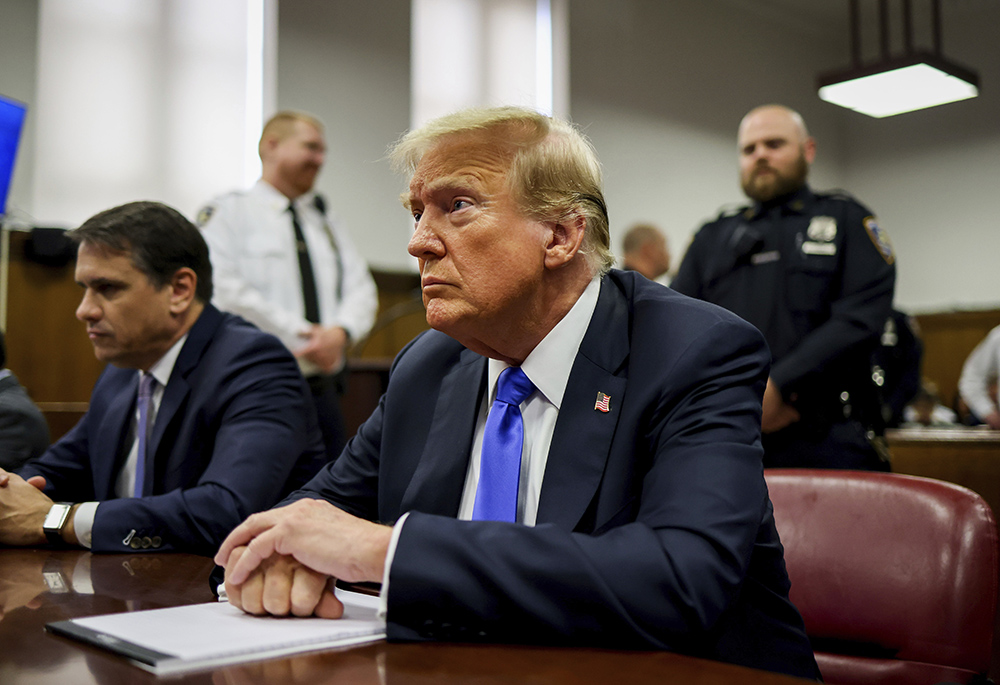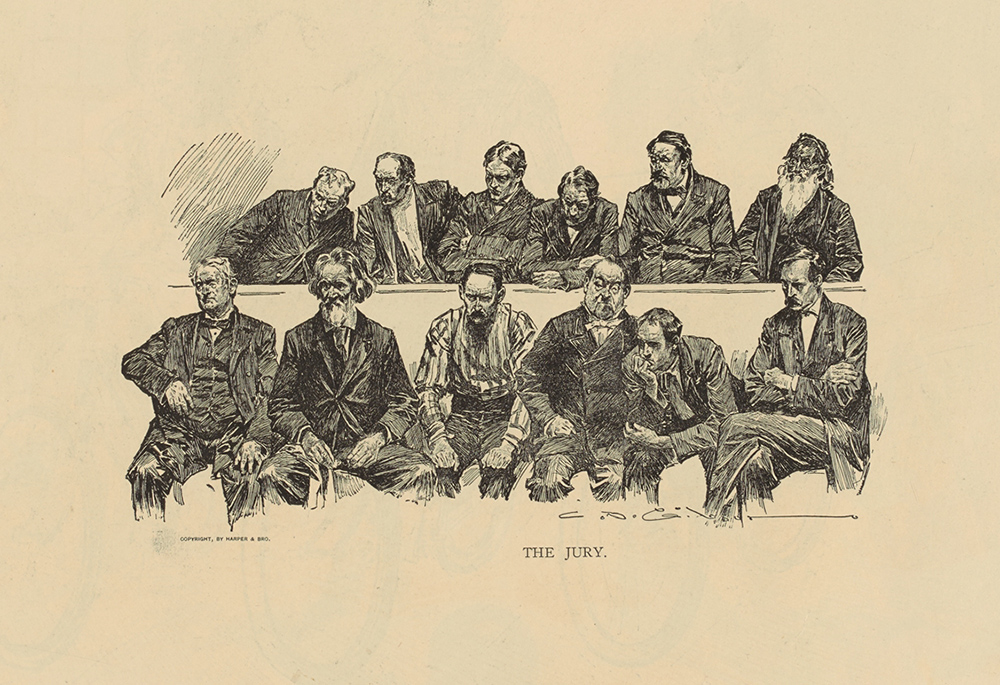
Former President Donald Trump sits in Manhattan Criminal Court, May 30 in New York. (Justin Lane/Pool Photo via AP)
Editor’s note: This column was filed and scheduled before the verdict was rendered in former president Donald Trump’s trial.
As I write this, the jury is still deliberating in the hush money case against former President Donald Trump. Last week, I wrote about the tawdriness of the trial but now, as we await the verdict, it is good to remember the civilizational triumph that is trial by jury.
Trial by jury was known in limited and episodic forms in the ancient world. But, in the Anglo-Saxon world, the practice only became a right with the "Great Charter of Freedoms" or, as it is known to history, Magna Carta in 1215. The charter listed several limits on the king's power over his subjects, and King John signed it at Runnymede against his will. In Clause 39, it states: "No free man shall be seized, imprisoned, dispossessed, outlawed, exiled or ruined in any way, nor in any way proceeded against, except by the lawful judgement of his peers and the law of the land."
Here was the first legal barrier against arbitrary power. No king, no matter how powerful, could take a person's liberty or property without a criminal judgment by the person's peers. The principle was violated by the institution of the infamous Star Chamber, which gave a popular monarch extraordinary extralegal authority to bring charges and inflict punishment. Trial by jury, and habeas corpus too, were sometimes denied to those deemed potential enemies of the state in wartime. In our own country, all-white juries in the Jim Crow South mocked the principle they claimed to embody. Still, Magna Carta's provisions regarding trial by jury remain a key part of the British Constitution and a foundation of our constitutional system too, honored sometimes in the breach as much as the fulfillment of the humane principle at stake.
Additional steps to limit arbitrary power have often begun by citing Magna Carta as their inspiration. The advocates of parliamentary limits on the monarch during both of the 17th-century English revolutions frequently pointed to the barons at Runnymede standing against King John as their inspiration.

"The jury" (1893-1900) by Charles Dana Gibson (Artvee)
In the 18th century, when the American colonies asserted their rights against the king and parliament, they, too, invoked Magna Carta. In the First Continental Congress' "Address to the People of Great Britain" in 1774, the American delegates stated, "That we claim all the benefits secured to the subject by the English Constitution, and particularly that inestimable one of Trial by Jury." It charged that the Stamp Act and other forms of taxation overthrew "every fence that the wisdom of our British ancestors had carefully erected against arbitrary power." The fear of arbitrary power was one of the most frequently cited themes of the many pamphlets in the late colonial era.
There is no guarantee that a jury will reach the correct conclusion. Many times, especially since the advent of DNA testing, convictions are overturned when subsequent evidence proves that the jury got it wrong. Trial by jury is only — only!?! — a hedge against the power of a government to use its power against the citizenry and not be accountable for that use of power.
Trump's allies, and the former president himself, frequently complain that President Joe Biden has unleashed the Department of Justice against them unfairly precisely because they want to undercut the idea that this proceeding is legitimate. Comparing himself to Mother Teresa, as Trump did on Wednesday (May 29), only demonstrated the degree to which Trump is unhinged, not the illegitimacy of the trial.
The American people know, or should know, that the jury system is the best device engineered by the human mind to protect the liberties of all against the power of the few.
Advertisement
It is an irony of the moment that the man who so boldly runs roughshod over democratic norms and election results, and who jokes (is it a joke?) about being a dictator for one day, might stand to benefit from this ancient legal barrier to arbitrary power. I doubt very much if he is found not guilty, it will lead him to consider the insidiousness of arbitrary power should he gain power again. If he is found guilty, he will again malign the jurors as he has the prosecutors and the judge.
Whatever the verdict, one half of the nation will be furious and will question it. The airwaves will be filled with people arguing the result was unfair. All nonsense on stilts. Unless the person raising the objection sat in the courtroom every day, and saw the same testimony and evidence the jury saw, and was sworn, as the jury was sworn, to set aside all bias, such complaints not only lack merit, they lack appreciation for the rule of law. They should be shunned. This goes for liberals who might protest an acquittal as much as for reactionaries who might protest a conviction.
No political regime exists that fulfills the promise of human dignity. All fall short of the kingdom of God. But it is a great blessing to live in a country with trial by jury and other constitutional barriers to the exercise of arbitrary power. No matter the verdict, that blessing should not be dismissed.








